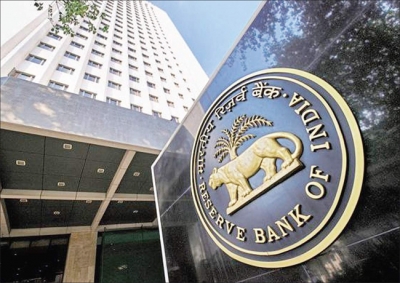Rising asset-quality risk on credit cards, dependence on fintechs for sourcing may be on RBI’s radar
New Delhi: The Reserve Bank of India (RBI) may have some discomfort on Personal Loan on Credit Card (PLCC) as it could lead to higher customer leverage and drive some customers into the debt trap, Emkay Global Financial Services said.
Amid the central bank’s current clean-up drive, card ecosystem players suggest the RBI may have some issues (e.g. customer KYC and data proliferation) around rising partnerships with Fintechs to onboard customers, and possibly may call for some rule-based guidelines from the regulator.
Factoring the aggressive growth in unsecured loans, including credit cards (particularly low-ticket CC) and rising customer leverage, the RBI had already raised risk weights on CC to 150 per cent from 125 per cent and, thus, forced players to temper growth/set aside higher capital, the note said.
The RBI’s concerns are already manifesting via rising delinquencies across card players.
“We do not expect a full asset quality blow-out, as seen post Covid due to a lower share of the revolver book, but some concerns remain on Personal Loan on Credit Card (PLCC) and, thus, turn cautious on card players,” the note said.
Amid the RBI’s ongoing clean-up drive, it recently issued a final circular that instructed card issuers to provide a choice to customers to select the card network player after repetitive nudges, which again highlights its relentless focus on protecting customer interest and promote RuPay Cards’ acceptance.
Separately, the RBI had earlier increased risk weights on cards to 150 per cent from 125 per cent, amid aggressive card growth and rising risk of delinquencies in the unsecured loan segment, Emkay Global Financial Services said.
After a draft circular in July-23, the RBI has now issued a final circular that instructs credit card (CC) players to offer choice to customers to select their network provider (e.g.: Visa, Master Card, and RuPay), instead of pushing cards with a network partner based on their own preference and incentives.
Moreover, card issuers have been instructed not to enter into any explicit and restrictive agreements with card network providers, directly/indirectly (via incentives). In the past too, the RBI had nudged card issuers (banks/card companies) to follow this practice, but it was not followed in spirit; thus, the RBI has now formally issued a circular.
“The directives under the circular will become mandatory from 1-Oct-24, but we believe it will be interesting to see whether card players will be forced to offer a particular card on all networks with nearly the same reward/incentive structure or not”, the note said.
–IANS


Comments are closed.